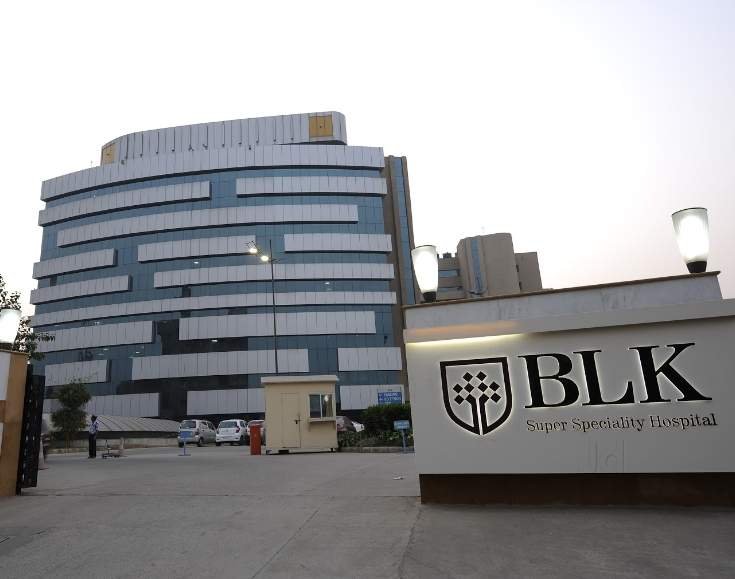The kidney is a vital organ in the human body since it is responsible for filtering waste from the body and keeping it clean and toxin-free. When a patient is diagnosed with kidney disease, different types of treatments can be tried.
In case no other treatments are effective, transplantation may be the sole alternative. It becomes important to search for the best kidney transplant hospital in India.
Every year, large number of patients from all over the world come to India for inexpensive organ transplant procedures. Among those transplants, kidney transplantation is one of the most common ones.

Primary Kidney Functions
Approximately 37 million adult Americans have kidney disease. High blood pressure, diabetes, and a number of other long-term (chronic) illnesses may result in damage. Kidney illness can cause brittle bones, nerve damage, starvation, and other health issues.
The kidneys are two bean-shaped, reddish-brown organs. They are around 12 centimeters (4+12 inches) in length in adult humans and are situated on the left and right sides of the retroperitoneal region.
Blood enters them through the renal arteries, and it leaves through the renal veins. A tube that transports expelled urine to the bladder ( ureter), is connected to each kidney.
The kidney’s primary function is to produce urine, which filters and removes moisture, minerals, and waste from the bloodstream. The kidneys also balance the blood’s levels of salts, water, and minerals, and remove acid that is produced by the body’s cells.
These include calcium, potassium, phosphorus, and sodium.
Common Kidney Disorders
When the kidneys are unable to effectively filter harmful waste and fluid from the body, renal failure develops, which elevates blood pressure.
The kidneys could completely stop working if the condition worsens over time. This indicates that the kidneys will need to operate through dialysis. Dialysis is a medical procedure that uses a machine to filter and clean blood. Although it cannot reverse renal disease, it can increase lifespan.
Acute renal injury and chronic kidney disease are the two main kinds of kidney disease (chronic kidney disease). Short-term kidney disease usually leads to full recovery, although it can raise a person’s chance of later-life chronic kidney disease.
Causes of Kidney Disorders
The following conditions can lead to kidney disease.
- Smoking
- Heart disease
- High blood pressure
- Diabetes (type 1 and 2)
- Obesity
- Family history of kidney disease
- Abnormal kidney structure
Symptoms of Kidney Disorders
Chronic renal disease signs and symptoms develop over time if kidney damage occurs gradually. Kidney failure can result in fluid retention, a buildup of bodily waste, or electrolyte problems.
Depending on how severe it is, kidney function loss can result in any of the following:
- Weakness and Fatigue
- Sleep problems
- Appetite loss
- Vomiting and Nausea
- Decreased mental alertness
- Cramps in the muscle
- Itchy and dry skin
- More or less urine output
- Swelling of ankles and feet
- Breath shortness
- Pain in the chest
- Uncontrollable high blood pressure
How To Keep the Kidney Healthy?
Maintaining kidney function is crucial for general well-being and general health. Here are some pointers to maintaining healthy kidneys.
Regular exercise
Regular exercise has advantages beyond reducing your waistline. It might lessen the possibility of getting chronic renal disease. It can also enhance heart health and lower blood pressure, both of which are essential for preventing kidney damage.
Blood Glucose Levels
Keep blood glucose levels in check. Diabetes patients are at an increased risk for kidney damage. When the body’s cells are unable to utilize the blood’s glucose, the kidneys must exert more effort to filter the blood. This may result in harm that endangers life.
However, the damage can be minimized if a person can control their blood sugar. Furthermore, if the injury is caught early enough, the doctor can intervene to decrease or stop further damage.
High Blood Pressure
High blood pressure can harm the kidneys. If high blood pressure coexists with diseases like heart disease, diabetes, or excessive cholesterol, the impact on the body could be serious. Therefore, keep your blood pressure in a healthy range.
Being obese or overweight increases the susceptibility to other diseases or conditions which can also damage their kidneys. These include kidney disease, cardiovascular issues, and diabetes.
A Balanced Diet
A balanced diet reduced in processed meats, salt, and other kidney-damaging foods can help avoid renal disease. Focus on eating fresh, naturally salt-free foods like shellfish, healthy grains, cauliflower, blueberries, and more.
The kidneys benefit from persistent, regular water consumption. With the help of water, the kidneys can eliminate salt and poisons. Additionally, it lowers the possibility of acquiring chronic renal disease.
Available Treatments for a Kidney disorder
Dialysis (peritoneal or hemodialysis) and kidney transplantation are the two options for treating kidney failure. Kidney failure is a sign of damaged kidneys, which means that they can no longer handle the functions properly. The decision for the precise treatment depends on:
- the person’s symptoms and signs
- If they experience any other health problems
- Remaining kidney function
Can Kidney Disease be cured? What is the success rate?
At the national level over a year, the success rate for living donor kidney transplants is 98.11%. 94.88% of transplants using deceased donors are successful.
The prevalence of chronic kidney disease (CKD) has been identified as a major public health issue on a global scale. There are between 5 and 7 million people with kidney failure who require renal replacement treatment, and the estimated global prevalence of CKD is 13.4%.
Most of the kidney diseases can be cured with medicine, it can help manage the condition’s symptoms and stop it from getting worse. The stage of the disease will help the doctor decide the course of treatment. The most effective treatments for maintaining kidney health involve lifestyle modifications.
Benefits of Kidney Treatment
There are different types of medicine-based treatments that can be taken up upon the recommendation of the doctor. For renal disease, one of the last options kidney transplantation.
A successful kidney transplant can prolong life and lower the mortality risk. Additionally, recipients of kidney transplants do not need to undergo hours of dialysis. They also live a better quality of life and do not suffer from symptoms like pain, fatigue, nausea, etc.
How do we at MyMedTrip.com help patients for kidney treatment?
Some of the top hospitals in India help patients with kidney ailments. These healthcare centers use cutting-edge technology to offer unique diagnostic and therapeutic services. Due to the affordable treatments provided by these facilities, patients swarm to India for their medical care.
The Indian healthcare system has highly qualified post-operative care teams and surgeons that can handle difficult patients. Nephrologists specialize in treating renal problems in facilities that include state-of-the-art machinery and knowledgeable employees.
Should you decide on traveling to India for medical assistance, you may email us at hi@mymedtrip.com or WhatsApp at +91 9818237391. You can also contact us here.









